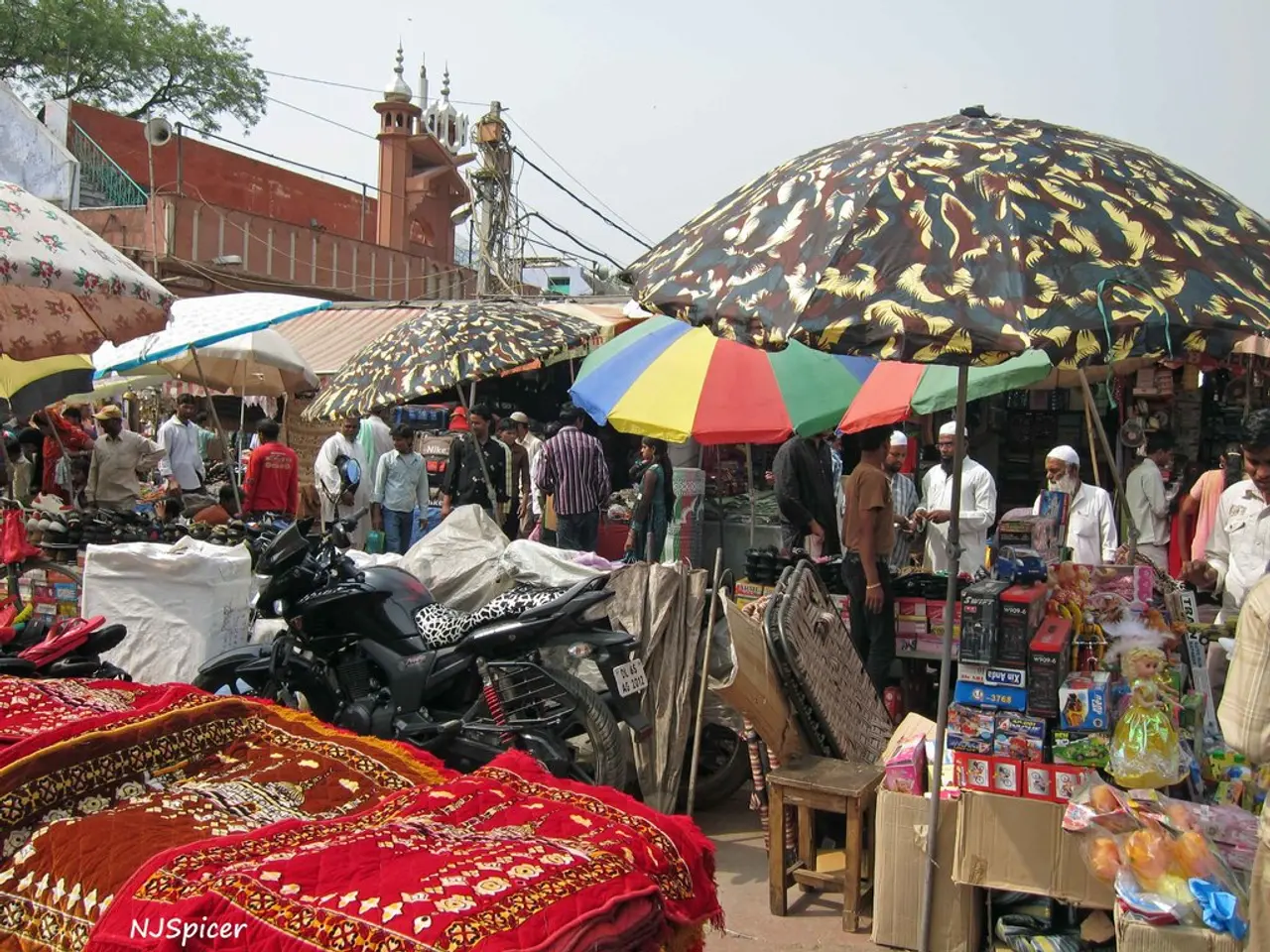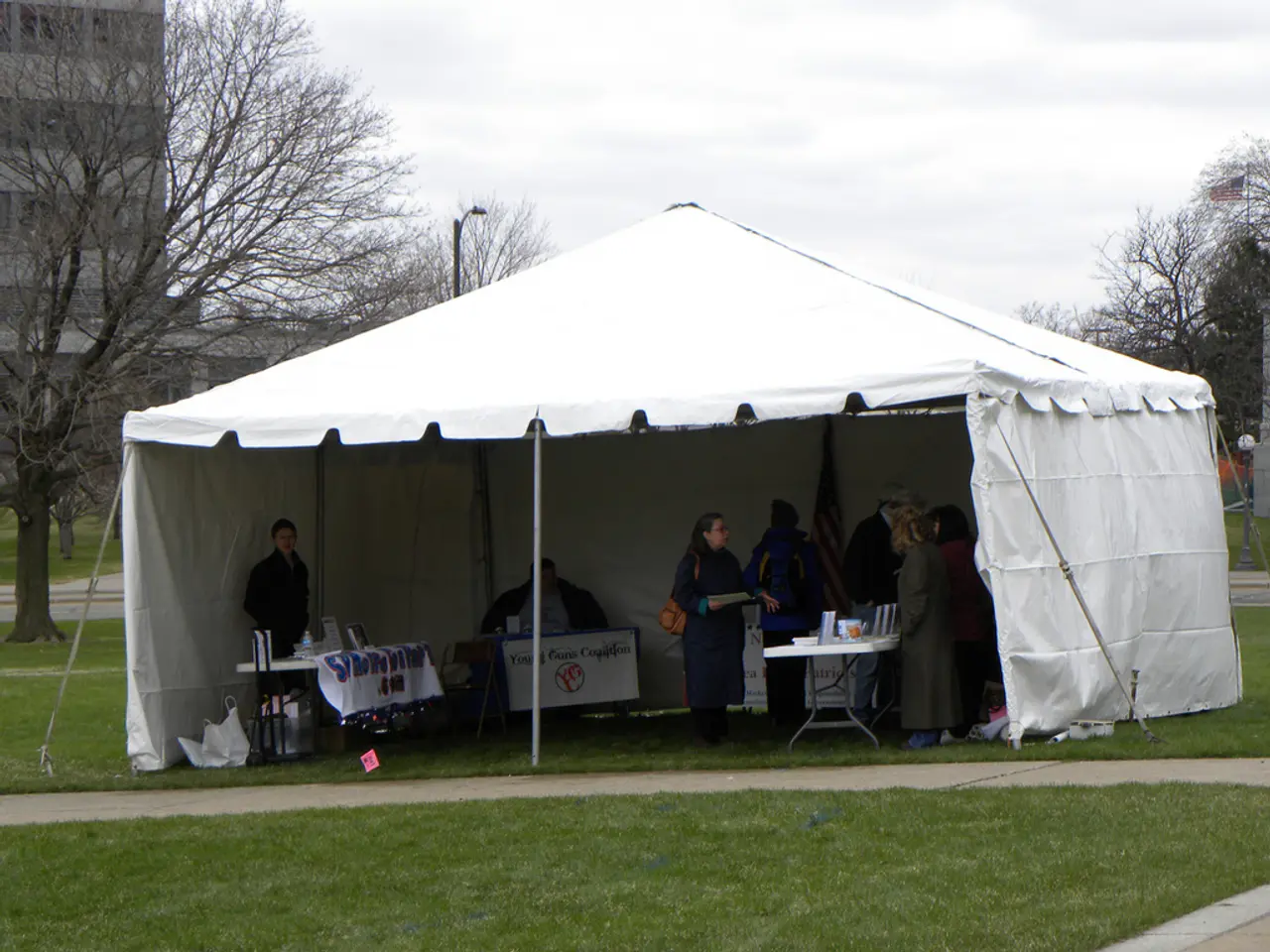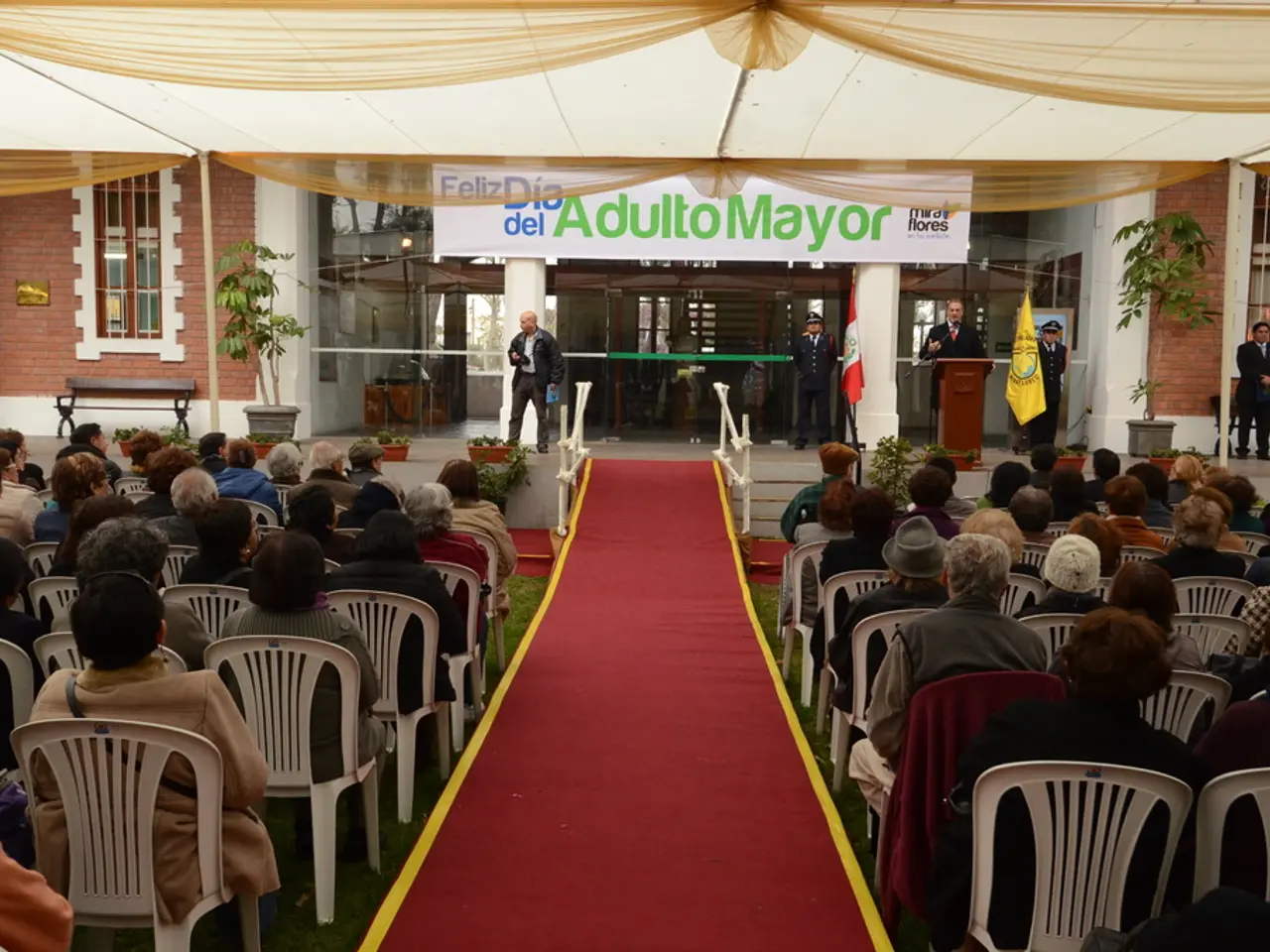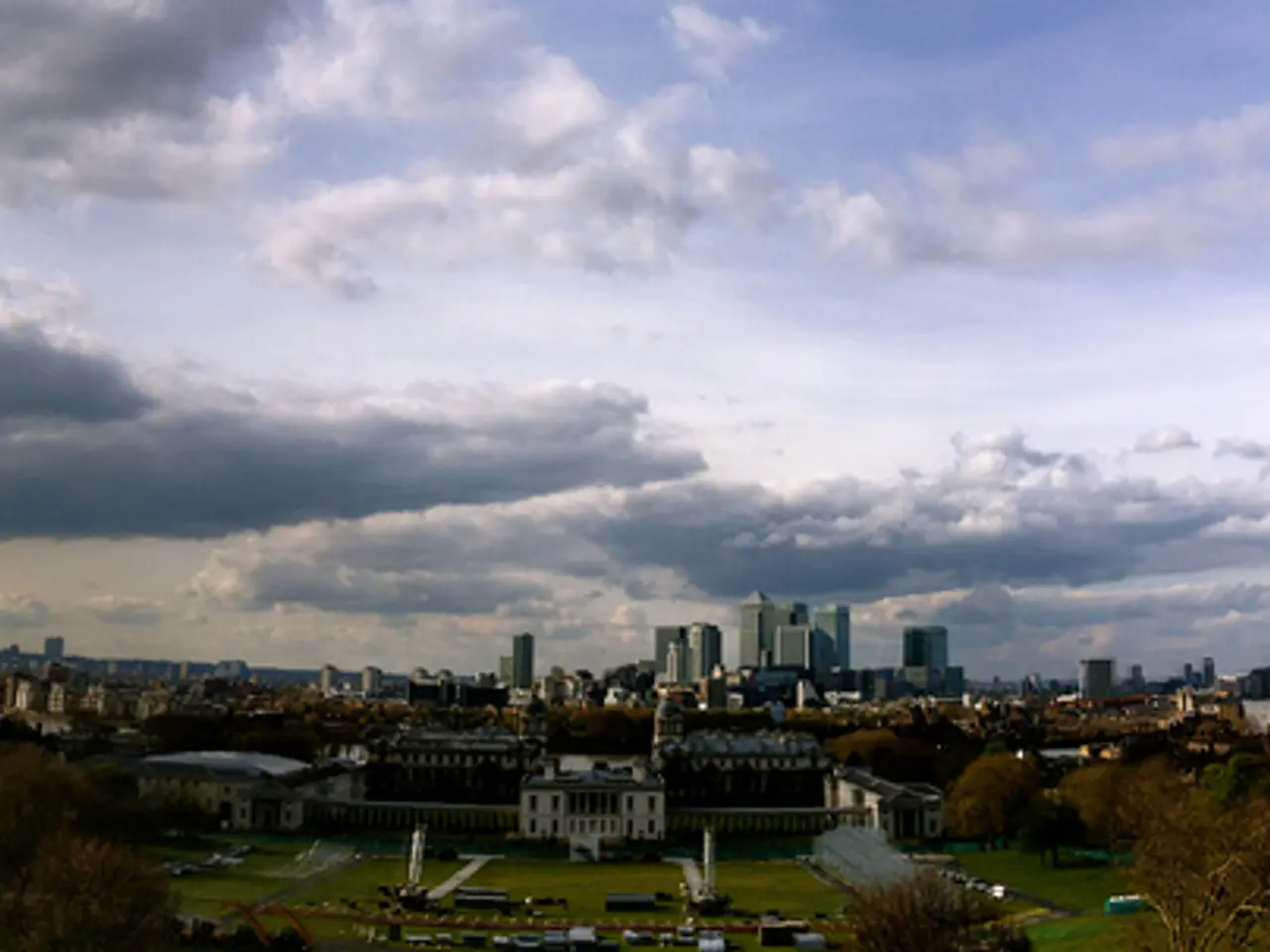Gulf traditions underlie the origins of 'Majlis', denoting a sitting room in Arabic
=====================================================================
The majlis, a traditional Arab gathering space, is more than just a place for furniture and floor plans. It serves as a hub for social interaction, decision-making, and cultural preservation.
The majlis, originating from the Arabic word "jalasa" meaning "a place of sitting," has deep roots in pre-Islamic and early Islamic Arabian social structures. Historically, it was a forum for open dialogue between tribal leaders and members, functioning as an informal governing council and cultural hub.
In its earliest use among the Bedouin, the majlis served as the community's gathering space for poetry, grievances, disputes, and social connections. Over time, it has evolved into a formal reception area in homes and public institutions, maintaining the continuity of traditional Arab hospitality and discourse.
The majlis is usually adorned with a thick carpet, low cushions, ornate coffee pots, incense burners, and dates set aside specifically for guests. This setting fosters a calm atmosphere that encourages perspective, symbolizing unity, respect, and generosity.
In contemporary Gulf homes, the majlis is a formal sitting room typically reserved for receiving visitors. It is often gender-segregated and designed for both comfort and ceremony. The majlis has retained its significance, adapting to modern lifestyles while preserving its traditional values.
The majlis has also found its way into local television, serving as the setting for talk shows and post-match discussions on Qatar's sports broadcasting network Al Kass. These councils reflect the original spirit of the majlis as a site of counsel and collective decision-making.
The UAE's Federal National Council is commonly referred to as Al Majlis, highlighting its connection to the traditional majlis. Similarly, Saudi Arabia's Majlis ash-Shura serves a similar advisory function.
Communal majalis serve as local gathering spaces for events such as weddings, condolences, and community meetings. Some are named after the suburbs they serve, such as Majlis Al Bateen or Majlis Baniyas.
The majlis is inscribed by Unesco as part of the intangible cultural heritage of the Arab world, recognising its enduring significance and adaptability. The core function of the majlis has remained consistent over time, emphasising the importance of dialogue that fosters connection and tolerance in building a cohesive society.
With urbanization, the majlis has evolved in form but not in function, remaining a central feature in Gulf homes today. Events in the majlis are rarely rushed, and occasions and gatherings are often advertised not by exact time, but from one prayer time to the next.
In the majlis, Arabic hospitality places value on attentiveness and presence. It is a space for listening, where stories, poetry, and community matters are shared and discussed. The majlis continues to symbolise unity, respect, and generosity, reminding us of the power of dialogue in fostering connection and preserving cultural traditions.
- Traditional majlis spaces, found in Saudi Arabia and across the Gulf region, extend beyond mere furniture arrangements, offering a platform for social interaction, decision-making, and cultural preservation.
- Modern home-and-garden designs in the UAE often feature a majlis, a formal sitting room, maintaining the traditional Arab hospitality and discourse while adapting to contemporary lifestyles.
- Qatar's sports broadcasting network Al Kass has used the majlis setting for talk shows and post-match discussions, emulating the original forum for open dialogue between tribal leaders and members.
- Travel enthusiasts can explore home-and-garden architecture that incorporates the majlis, such as Majlis Al Bateen and Majlis Baniyas, in various suburban areas within the Gulf countries.
- Photos capturing the intricate décor of a majlis, complete with cushions, coffee pots, incense burners, and dates, offer a glimpse into the rich cultural heritage and lifestyle of the Arab world, preserving its enduring values in the modern world.




